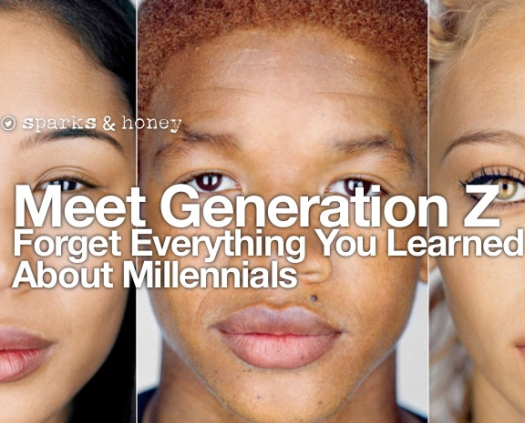 Digital Generation. Gen Z. Silent Generation. Second generation in the Millennial cohort. The “coming demographic tsunami.”
Digital Generation. Gen Z. Silent Generation. Second generation in the Millennial cohort. The “coming demographic tsunami.”
However you refer to them, Generation Z (born 1995-2010) is the young, fresh round of talent you’ll be recruiting very soon, which will be a different experience than generations before them.
Gen Z was born into a digitized economy and, according to a study by New York-based marketing agency Sparks & Honey, 37.8 percent hope to “invent something that will change the world.”
The connected quality of the older Millennial generation will only be amplified by Gen Z, so be prepared to adjust your recruiting strategy as you begin to connect and communicate in new ways when you start recruiting Gen Z:
The Generation of Leaders
Once Gen Z enters the workforce, they will quickly evolve into leaders, likely as a result of the world they grew up in: conflict, economic downturn, school violence. The opportunity for improvement is obvious to them, and they will do something about it.
The study by Sparks & Honey found 61 percent of high school students want to be entrepreneurs rather than employees, compared to 43 percent of college students, which makes up the generational divide between Gen Y and Z. Additionally, Gen Z grew up with more people in the house and thus have been forced to learn humility and sharing from an early age.
What this means for recruiters: As this generation naturally turns to entrepreneurial roles, it will become challenging to find high-quality candidates who want to work for someone else. Money will also be less important; turning a passion or hobby into a business or career path will be their ultimate goal.
Position your jobs in terms of long-term career paths with visible opportunity to step into leadership and intrapreneurial roles. As a recruiter, your role will ultimately evolve into counseling this driven and digital-native generation to find a career they will truly love and be passionate about.
Communicating in a Whole New Way
Having grown up with technology at their fingertips, Gen Z has developed a new form of communication. They prefer emojis over words and use YouTube like Google; if they have a question about how to do something, they watch a video.
It’s all about quick, intuitive communication without unnecessary precision. However, they understand the importance of privacy, perhaps more so than generations before them. Anonymous communication tools with no trailing news feed, such as SnapChat, Secret, and Whisper, are chosen over Facebook by this generation.
What this means for recruiters: Gen Z will be highly mobile and will demand communication that can support their free and nomadic nature. According to a 2012 Forrester Research study, Gen Z is the second-largest demographic owning an iPhone at 24 percent, with Gen Y ranking highest at 29 percent.
If you want to recruit this generation, you need to be active in the places they are without being too intrusive. This will be difficult since many of the communication platforms they are migrating to have more of a one-on-one feel, are a little less professional, and are more social.
This will force you to be much more open and honest about why you’re reaching out, and they will appreciate that. Once you reach them, be prepared for a confident and charismatic bunch that has grown up in front of the camera.
Redefining the “Picture Perfect Candidate”
It is quite possible that the 9-to-5 work day as we know it will end with Gen Z. In their minds, they are “always on,” and they have all the tools necessary to get work done from anywhere in the world, so it makes no sense they would have to stick to a rigid schedule and be at the same place every day.
Additionally, college degrees and the large amount of debt that come with them are less desirable and perhaps less important to Gen Z. According to the Sparks & Honey study, 64 percent of Gen Z-ers are considering an advanced college degree, compared to 71 percent of Gen Y.
What this means for recruiters: What the “picture perfect candidate” looks like has already changed dramatically with Gen Y. But as Gen Z enters the workforce, it will change it even more, requiring recruiters to change their own thinking, as well as counsel their employers on what this new employee looks like.
You may also find that your normal routine for reaching out to candidates will have to change as you begin to recruit Gen Z. With their general “hours” up in the air, you may have to be open to taking a call at 8:00 at night instead of 8:00 in the morning.
Gen Z will change the workforce as we know it. As a recruiter, you need to make sure you’re not only preparing yourself for this new workforce generation, but also your clients and supervisors. This “coming demographic tsunami” of 26 million people will take charge, be the change we may desperately need, and revolutionize the workforce in ways we have never experienced before.